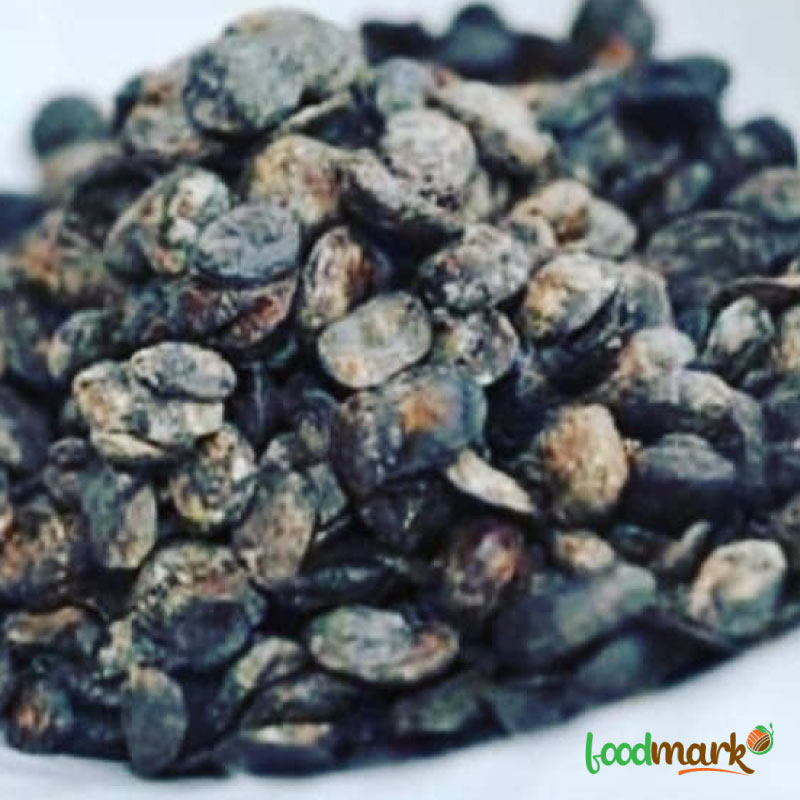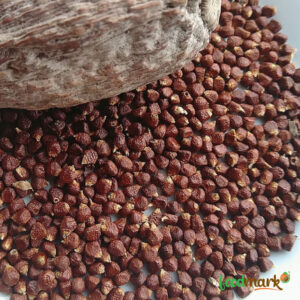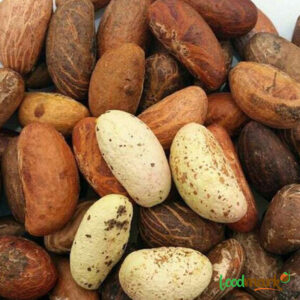Locust beans, known as “Iru” or “Iru Woro” in Yoruba, is a traditional African condiment made from fermented African locust bean seeds. It is commonly used in West African cooking, particularly in Nigeria, Ghana, and Cameroon. Here are some key points about locust beans:
- Production: Locust beans are made by fermenting African locust bean seeds. The seeds are boiled, dehulled, and fermented for several days, which gives them a strong, pungent aroma and flavor.
- Nutritional Value: Locust beans are a good source of protein, fiber, and essential minerals such as calcium, iron, and potassium. They also contain vitamins B1, B2, and B3.
- Culinary Uses: Locust beans are used as a flavoring agent in soups, stews, and sauces. They add a rich, umami flavor to dishes and are particularly popular in traditional Nigerian soups like egusi soup and ewedu soup.
- Health Benefits: Locust beans are believed to have several health benefits. They are thought to aid digestion, improve gut health, and boost the immune system due to their probiotic content.
- Cultural Significance: Locust beans are an important ingredient in West African cuisine and are valued for their unique flavor and nutritional benefits. They are often used in traditional dishes and are considered a delicacy in many cultures.
- Cooking Tips: To use locust beans in cooking, they are typically washed and then added to the dish towards the end of cooking to allow their flavor to infuse. They can also be mashed or ground into a paste and used as a seasoning.
Overall, locust beans are a versatile and flavorful ingredient that adds depth and richness to West African dishes. They are valued for their taste, nutritional benefits, and cultural significance in the region’s cuisine





















There are no reviews yet.